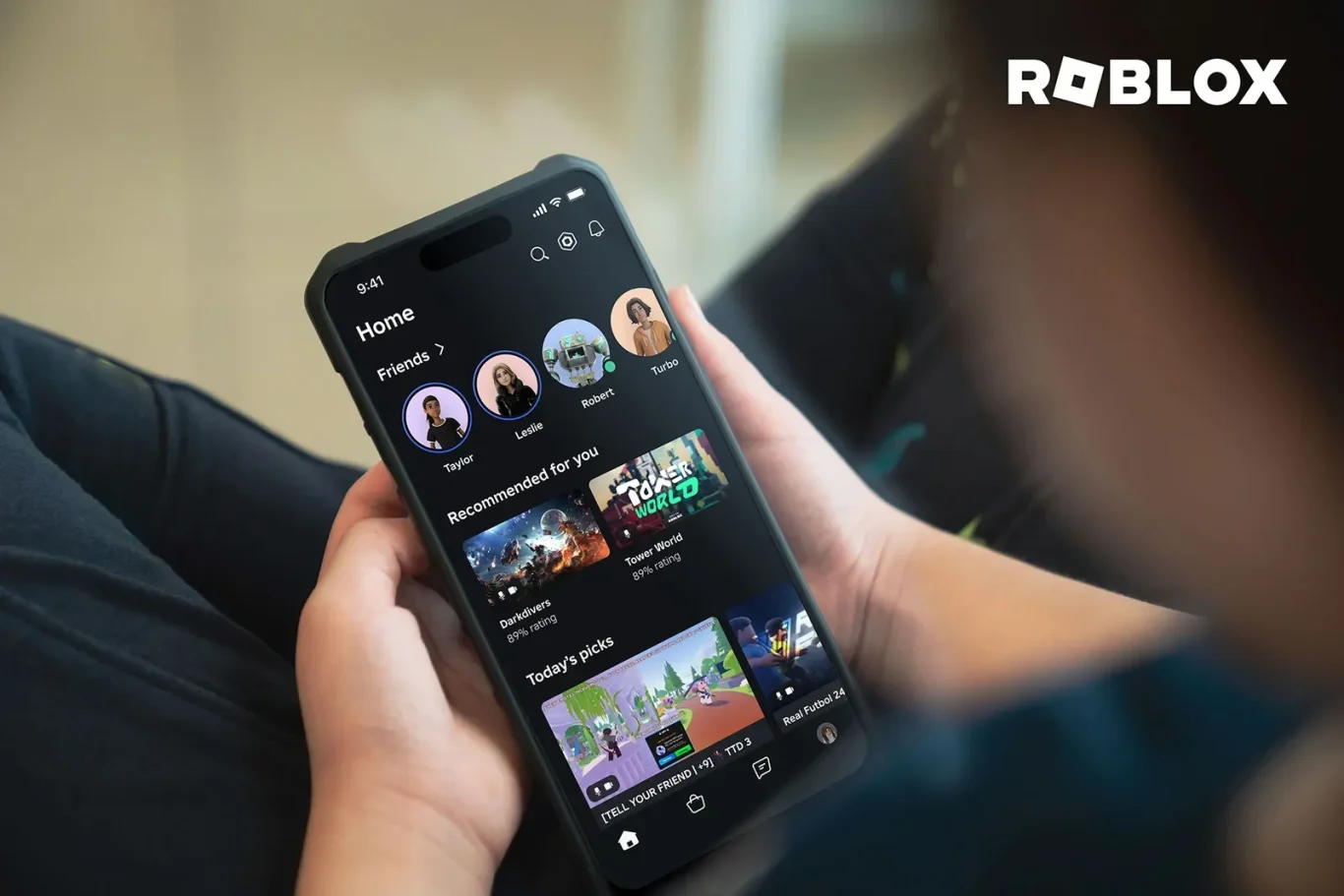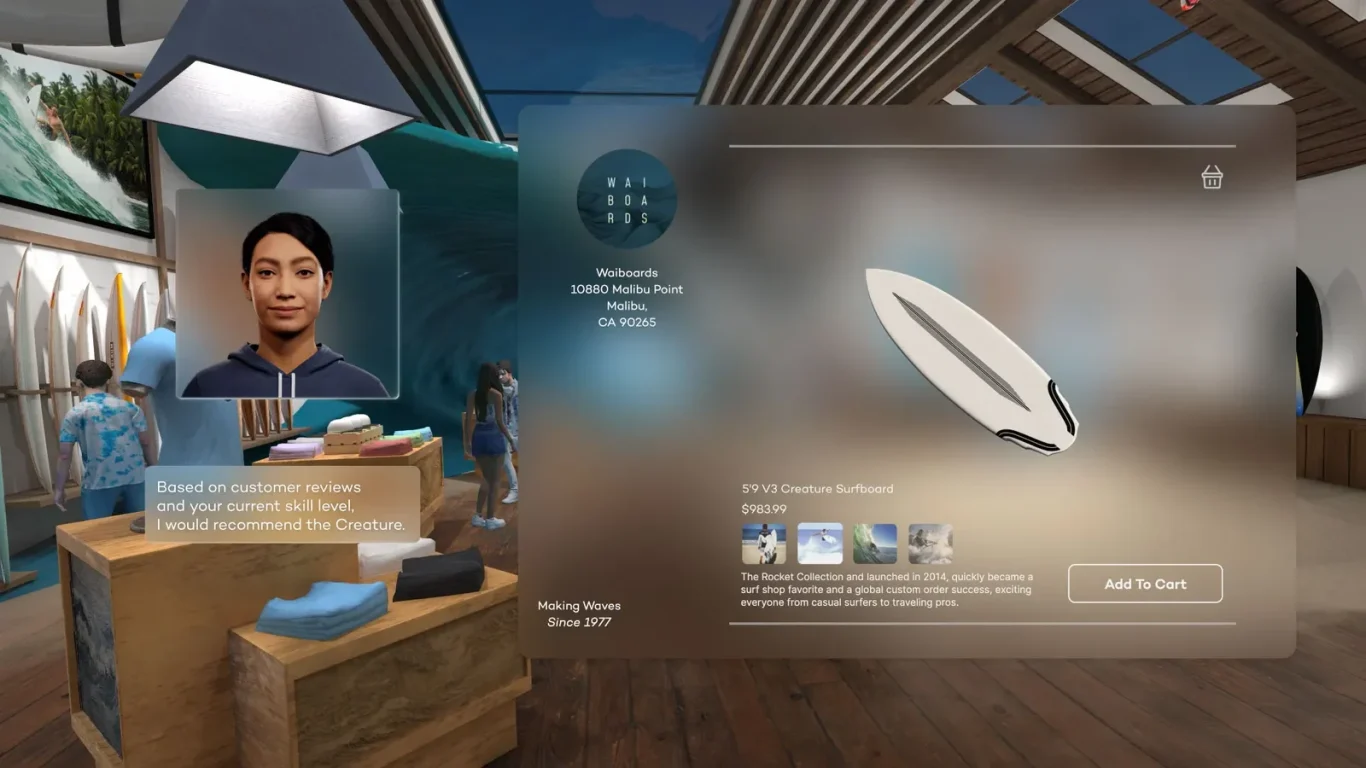Shaping the Future of Fashion: Gen Z, AI, and the Metaverse Revolutionizing Shopping
Business
October 08, 2024
As Gen Z's economic power grows, their engagement with digital worlds is redefining how we shop. Online shopping is evolving from flat grids to immersive 3D environments, with gaming and fashion intersecting in ways that are reshaping e-commerce. Advances in artificial intelligence (AI) are accelerating this shift, enabling brands to create virtual stores with personalized experiences, setting the stage for a gamer-friendly future of retail.
The Rise of Fashion in the Metaverse

With the metaverse gaining traction, platforms like Roblox are leading the charge by allowing creators and brands to sell physical merchandise alongside digital goods. By 2025, Roblox plans to integrate physical sales into its virtual experiences, allowing users to purchase items from their virtual worlds. This shift, powered by AI, represents a major leap in online commerce, turning virtual spaces into functioning storefronts.
AI's role in this evolution is critical. Roblox’s 3D foundational model allows users to create virtual objects using text, image, video, and 3D inputs, making it easier for brands to develop virtual stores. With over 80 million daily active users already accustomed to digital goods, this shift from virtual to physical shopping has vast potential.
Gen Z and the Future of Retail

Gen Z, having grown up in digital worlds, is pushing the boundaries of traditional retail. Virtual gaming environments are central to their social activities, and as they mature, their spending will increasingly flow into these virtual spaces. Research from Bain shows that shopping in virtual environments is projected to grow by 229% over the next five years.
Karina Kogan, CMO at Infinite Reality, emphasizes that Gen Z expects interactive, gamified shopping as part of their online experience. Traditional e-commerce struggles to meet these expectations, but virtual stores are filling this gap.
Major Brands Adopting Virtual Stores

With the holiday season approaching, brands are launching or updating virtual shopping spaces. Companies like Ralph Lauren, Charlotte Tilbury, and Elizabeth Arden have already experienced success with their virtual stores, offering customers an engaging way to explore and shop.
These virtual stores allow consumers to explore, have fun, and even learn about products, borrowing mechanics from video games to create engaging experiences.
AI: The Driving Force Behind Virtual Shopping

AI is at the core of creating personalized, immersive shopping experiences. Platforms like Roblox are developing AI-powered 3D models that allow brands to customize their virtual spaces with minimal effort. Similarly, Google’s AI tools help brands offer personalized recommendations, creating an intuitive shopping journey.
Virtual shopping assistants can suggest products based on user preferences and past purchases, making the experience both engaging and efficient. AI-driven design tools also make it easier for brands to build and adapt their virtual spaces, reducing the cost and complexity of maintaining a digital presence.
The Future of Shopping in the Metaverse

As technology improves, the integration of e-commerce with gaming is becoming clearer. Roblox’s collaboration with Shopify, for instance, allows brands to sell physical products in virtual worlds. This seamless connection between the digital and physical worlds is a major step forward in the evolution of virtual shopping.
With virtual stores becoming more mainstream, experts believe that they will soon be as common as traditional websites. The partnership between Infinite Reality and Google Cloud aims to make virtual worlds more accessible, enabling brands to build, manage, and scale virtual stores with ease.
As Gen Z continues to influence the retail landscape, their affinity for immersive digital experiences is guiding the evolution of shopping. AI and metaverse platforms are shaping a future where virtual stores offer personalized, gamified, and interactive shopping experiences. Brands that adapt to these changes will gain a competitive edge, engaging consumers in new and innovative ways.
Newsletter
Subscribe to Porterium Magazine's newsletters.
Follow us
Follow us on social media platforms.
We need your consent to load the translations
We use a third-party service to translate the website content that may collect data about your activity. Please review the details in the privacy policy and accept the service to view the translations.

